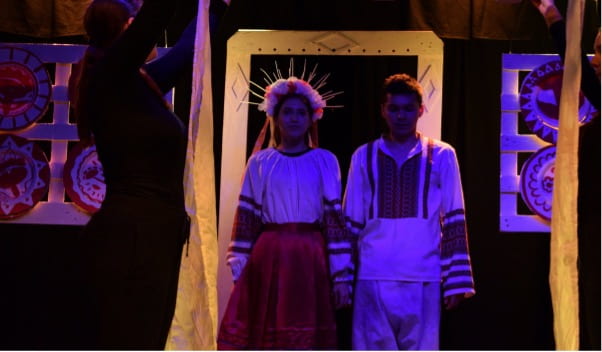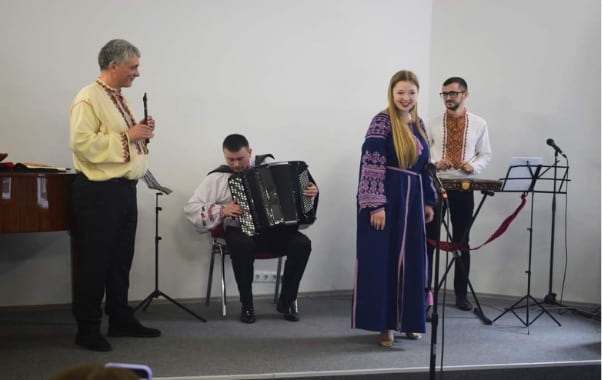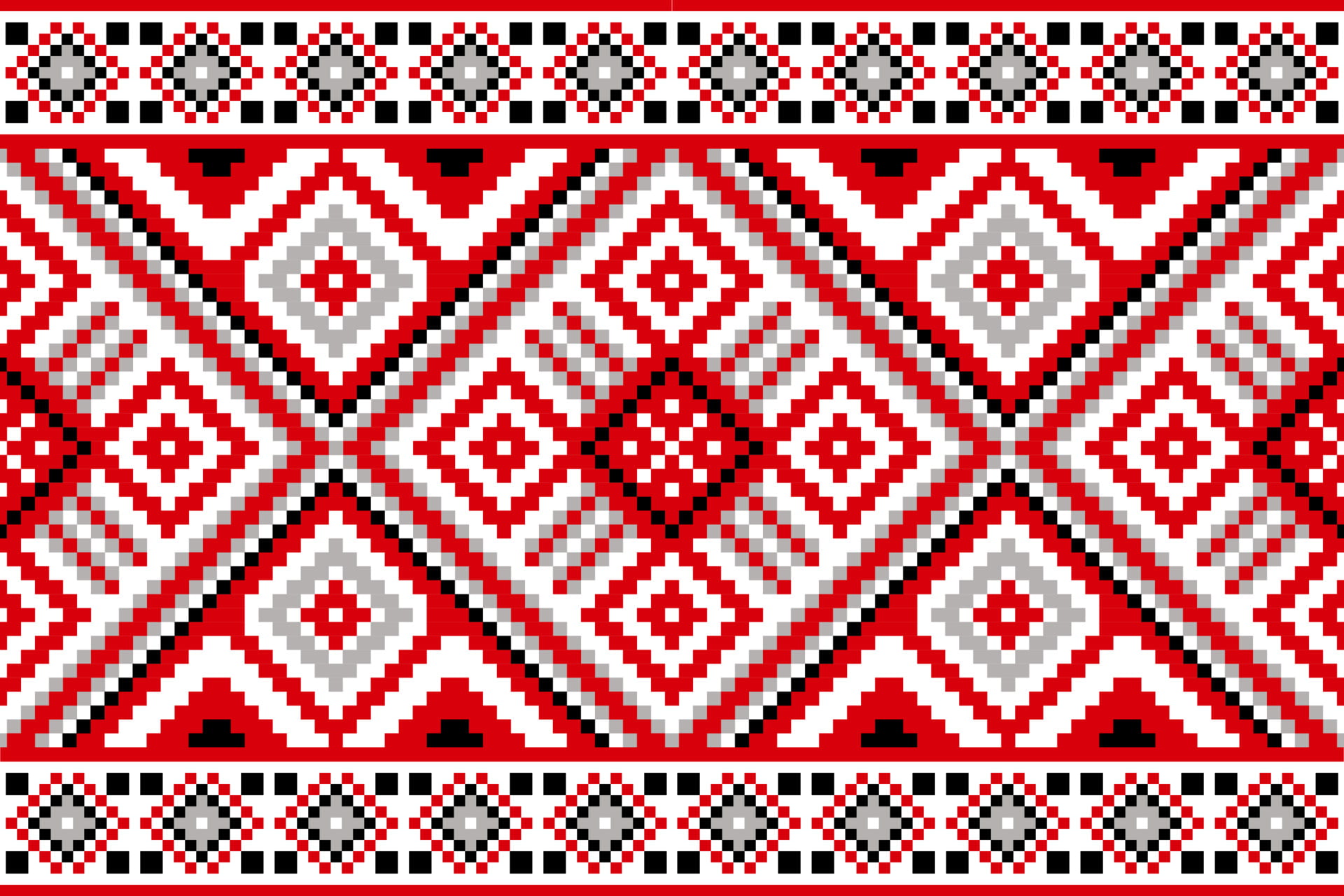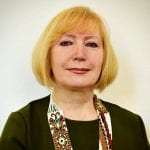Latest posts
- Journal article: Reimagining Peace Education in Nepal: Arts-Based, Learner-Centric Pedagogy for Social Justice and Equity 13 July 2025
- Curricula: Mithila art-focused local curriculum in Nepal 2 July 2025
- MAP International Online Conference 2025 1 June 2025
- Policy brief: Gira Ingoma book and policy brief: “The Culture We Want, for the Woman We Want” 28 November 2024
- Manuals and toolkits: GENPEACE Children’s Participation Module in the Development Process 13 November 2024
- Journal article: [Working Paper] Gira Ingoma – One Drum per Girl: The culture we want for the woman we want 30 October 2024
- Curricula: Beyond Tradition: Psychosocial Model 30 October 2024
- Curricula: Beyond Tradition Module: Revitalizing Lenong as a Model for Teaching Betawi Arts 30 October 2024
- Curricula: Beyond Tradition: Lenong Revitalisation as a Model for Teaching Betawi Cultural Arts 30 October 2024
- Beyond Tradition Lenong Performance “RAWR…! Kite Kagak Takut” 30 October 2024
- Journal article: [Working Paper] Facing Heaven – Déuda Folklore & Social Transformation in Nepal 30 October 2024
- Curricula: Building Community Curriculums 24 October 2024
Reflections on the “Revitalising Tradition to Inform Curriculum” Webinar: Exploring Theoretical and Practical Perspectives
- Cultivating well-being and mental health
16th November 2023
Author
The webinar on 19 October 2023, titled “Revitalising Tradition to Inform Curriculum,” organised as part of the Mobile Arts for Peace (MAP) project, highlighted the significance of cultural traditions in youth and education. The presentations and discussions focused on the role of incorporating cultural art forms into curricula, and approaches to engaging young people in this process.
As one of the keynote speakers in the webinar, my presentation emphasised the significance of utilising the therapeutic potential of national cultural traditions. By therapeutic, I mean… this topic holds particular importance in today’s world, as an increasing number of individuals, especially children and young people, require diverse forms of psychosocial support in the challenging circumstances created by conflict. It is worth noting that the annual World Mental Health Day on 10 October 2023 underscores the universal right to psychosocial support and the necessity of finding alternative approaches to its provision. The presentation, suggesting the revival of national cultural and artistic traditions offered a promising avenue to address this issue.

The revitalisation and integration of cultural traditions into educational spaces and curricula, as well as introducing them to the young generation, are crucial issues today. I believe the effect of globalisation has gradually led to a one-world culture, where national cultures can lose their uniqueness and status (Bird & Stevens, 2003:403). Furthermore, with conflicts prevalent worldwide, there is a need for innovative approaches in youth education that reconnect them with their roots through traditional arts (Arslanbek, Malhotra, and Kaimal, 2021) and enable them to adapt and re-imagine them. In addition, it is crucial to fostering peaceful initiatives that can effectively address global crises. In this sense, the MAP project’s objectives, which involve incorporating diverse cultural forms to influence curricula, have great potential to address urgent global issues despite these obstacles.
MAP presents a unique platform that can facilitate theoretical research while developing practical recommendations for utilising the therapeutic potential of cultural traditions towards psychosocial support for children and young adults. This area of research holds particular significance for Ukraine today, as state institutions and international organisations, including the Ukrainian Red Cross, are presently focusing significant attention on it. However, the involvement of students and art educational institutions in Ukraine is critical to advance this process through practical experience and creative psychosocial support initiatives.
The significant experience of the MAP project in using artistic approaches through theatre, photography, music, film, visual arts, and music, as well as other cultural forms, is extremely important and relevant for art educational institutions in Ukraine. The work of MAP can be shared through cooperation with one of the leading art educational institutions in Kyiv, Ukraine, such as the National Academy of Culture and Arts Management. For instance, the academy is currently implementing the Art of Helping project as part of the All-Ukrainian Mental Health Programme “How Are You?” launched by the First Lady, Olena Zelenska. This highlights the critical importance of mental health in Ukraine today.

In conclusion, the topics discussed during the “Revitalising Tradition to Inform Curriculum” webinar hold both theoretical and practical significance in addressing global challenges. It is essential to continue to explore and utilise traditional cultural forms to foster psychosocial support, especially for children and young adults impacted by conflicts. The MAP project and art educational institutions can play a crucial role in advancing this initiative, promoting peace, and addressing critical global issues.
References:
- Bird, A., & Stevens, M. J. (2003). Towards an emergent global culture and the effects of globalisation on obsolescent national cultures. In Journal of International Management, 9(4), 395–407.
- Arslanbek, A., Malhotra, B., and Kaimal, G. (2021), ‘Indigenous and Traditional Arts in Art Therapy: Value, Meaning, and Clinical Implications’. In The Arts in Psychotherapy, 77, p. 101879. Available at: https://doi.org/10.1016/j.aip.2021.101879.
Header image credit: vecteezy

